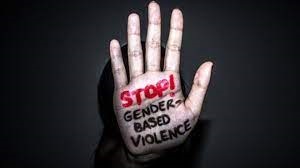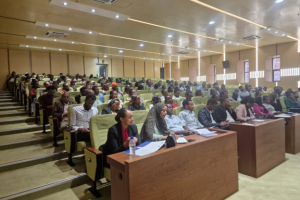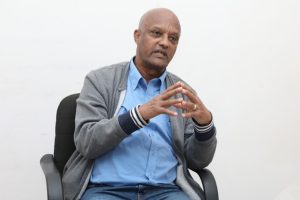
African women have been the most marginalized and subverted sections of society for centuries. Scholars in the field of gender did associate this subversion to be the consequences of the socio-cultural background of the given society. They further argued that the socialization of the intended community did mean a lot about gender-based treatment. Socialization is a very broad concept. The factors that resulted from a kind of system are very volatile and various in type. The leading influencing aspect is religion. Though religious perceptions and inclination degrees vary according to the nature of the people, religion had a greater impact on the process of socializing issues like gender.
Even though the interpretation might still be dependent on the words and language structures, most of the verses in the Holy Bible did appreciate the calmness, silence, shyness, decentness, serving and patience of the females in the given community. Here, I can agree that these verses have the potential to be understood and interpreted differently. However, the critics are highly diverted and contextualized to serve as the source of women subordination. Males around women confidently referred some verses that seem underestimating females.
Thus most African countries’ socialization is constructed in a way that echoes female inferiority. This again brings the logical marginalization of them in society. A woman is a good woman if she keeps the above-mentioned traits. Thus, females have been ignored from any debate. They learn how to hide their issues. Though females have very influential issues that could change many things, they have been missing spaces to speak them up.
These days, lots of media outlets and technological devices are massively joining spaces. However, even though there are some changes, women still remain the muted sections in the family and society. Since attention and concerns are becoming strongly on women, laws and regulations in local and international levels are progressively formulated in the continent. As one way of implementing these laws, the media have been playing a greater role in exalting the gender gap in the region. Here are some instances.
Since women‘s sexual violence and rape were the most controversial issue in Sierra Leon, BBC had planned to do a documentary by the reporter Tyson Conteh who investigated the issue in a very practical way. He started by meeting with his old male friends to know about the extent of the problem. He met with them in a cafeteria. He then raised the issue. One of his friends said the following. “It is women themselves who did initiate men to stand for rape. Women did show sensational sign for the man to feel sexual emotions.” The other friends show their agreement with this idea. The reporter was surprised. Then he turned his face to find victims. He heard about a disappointing story, and ran to know about it.
The story was about a girl child whose age ranges between 5 and 6. It was her mother Amita that narrated the happening to Tyson. “I was working for a woman who I know her for years as a maid. One day, she gave me an errand that by Saturday morning to go the market.” As per the order, she went to the market giving her baby girl to the woman’s son whose age was 22. “He took my child to buy sweets and biscuits for her. It was a lie. I gave him my child.” After she came back from market, the baby never arrived. Then she decided to look for her around.
She found the baby with drippling blood. “He was pulling back the torn knicker on the child. Then I asked, ‘what happened?’ he said the child was bleeding and pooh” The woman took the child to hospital. . “The nurses began checking my child and they said, ‘Oh God what has this man done this to the child? Even for an adult, it would hurt if it happened. ‘They took my child to the operating theater to stitch her up. He had sex with her. The doctor who was treating the baby even cried.”
This woman was silent about the case. Though she took the case to the police for justice, it was not appropriately served till this reporter took it as an agenda in the media. He logically followed the case step by step. Then, he faced the police who was treating the issue. The policeman mentioned various challenges that he and his team were through. But the reporter activated the case and rans things in time. Finally, the wrongdoer was arrested and justices were served. This was fast to happen since the story that the woman was carrying inside was very touching and had a greater sound. That sound got that platform and busted out to recall the masses to stand for justice to get prevailed.
In the second investigation of this reporter, one more important thing was identified. That is the interrelation of civil war with the degree of women violence and rape.
The reporter had recalled the history of the country which seems had a greater impact on the societies’ perception and attitude that resulted from sexual violence being encountered as normal. The history of civil war was done from 1991 to 2002. The warriors called Revolutionary United Front (RUF) were in the front for their agenda. At that time, the child solider called Mohammed Koroma remembered how the soldiers were abusing women and girls.
Here is his say, “We were forced to bring females. If we didn’t come back with a woman, they would kill us. So, we brought the women by using force. The commander would choose ‘I want her and her. Because of the war, lots of women were raped. Then, many people now think that this is the norm.”
In Ethiopia the outbreak of the civil war in the northern part of the country over the last two years exposed dozens of women and girls for massive gender-based violence including rape. Various reports and media houses had investigated that the huge number of girls and women were raped by soldiers which was intentionally done as a weapon of revenge. Since females are the weak and vulnerable sections of the society, the shocking suffering both physically and psychologically was not covered and knocked the doors of those responsible bodies as per its magnitude.
The most irritating story that grasps humankind’s attention recently was also happened in the country on the raised issue. The heartbreaking and ear-piercing story which was muted for a year was only voiced on social media. It was about a 7 year old baby girl. As her mother narrated it, one day she was in her way to work. Then she left the baby with a man. He raped her in a way that was totally out of the cultural norms of the people. Since she was bleeding and fainted, he murdered her. Even though the case is under court prosecution, it has been the leading agenda for everyone in the country. People are pushing for the responsible body to revise the criminal law on such cases. Initiations including the Ministry of Women and Children office itself had brought an elucidation and its commitment to fighting such violence strongly. This is possible since the social media was there to enable the woman to speak about the issue.
According to a 2004 study by the Pole institute 83% of the rape are carried out by armed men In those countries that get free from civil war, women are fighting it back. Let’s see the instance from Liberia. In 2003 Affel, the Association of Female Lawyers of Liberia made the first breakthrough for women’s rights by changing matrimonial property law. The next step was to modify the definition of rape to include all forms of sexual violence. Krubob.B. Kollie (Chancellor) said, “We changed from penis to finger to any instrument that will be used to penetrate the female sexual body.”
Liberia experienced 14 years of civil war. With this period 40 percent of women and girls were raped.
The Minister of Gender, Yarba Goylar, sees empowering women at the senior level as the key to long term change. “We can be free again where women can participate in the police, where women participate in security forces and where women can work and teach and does everything as well as men can do.
In line with this, in a recent essay published in Brookings former president Ellen Johnson Sirleaf said, “To craft inclusive and equitable approaches to the issues raised, African women and girls must play a leading role. It is not enough to recognize that African women and girls deserve rights by adopting new laws and frameworks; countries must ensure that these rights are a lived reality.”
She also added, “Though there are many successes to celebrate, let us not allow this moment to pass without making concerted shifts in attitudes policies, and implementations that harness African women’s rich knowledge and experiences. This period calls for a collective pivot that ensures African nations succeed in the 21st century.”
The conclusion is the space for African women is still dominated by men issues and subjects. Doors are still in struggle to get open for the voices of females of the region. Thus, based on the above explanation I need to enclose this article saying three things. Before the outbreak of any type war, females’ security needed be taken in to consideration. For this to happen, every section of the society is responsible. Secondly, media outlets should get alerted on searching for issues of females and be optimistic in setting women issues as an agenda in their various platforms. The third point is, those who are in a position specially women leaders should be active and influential. Those prominent leaders of the continent strongly advise African women leaders to be committed to using their chair for bringing gender based biases in the country.
BY: MEKDES TAYE (PhD)
THE ETHIOPIAN HERALD FRIDAY 30 AUGUST 2024




